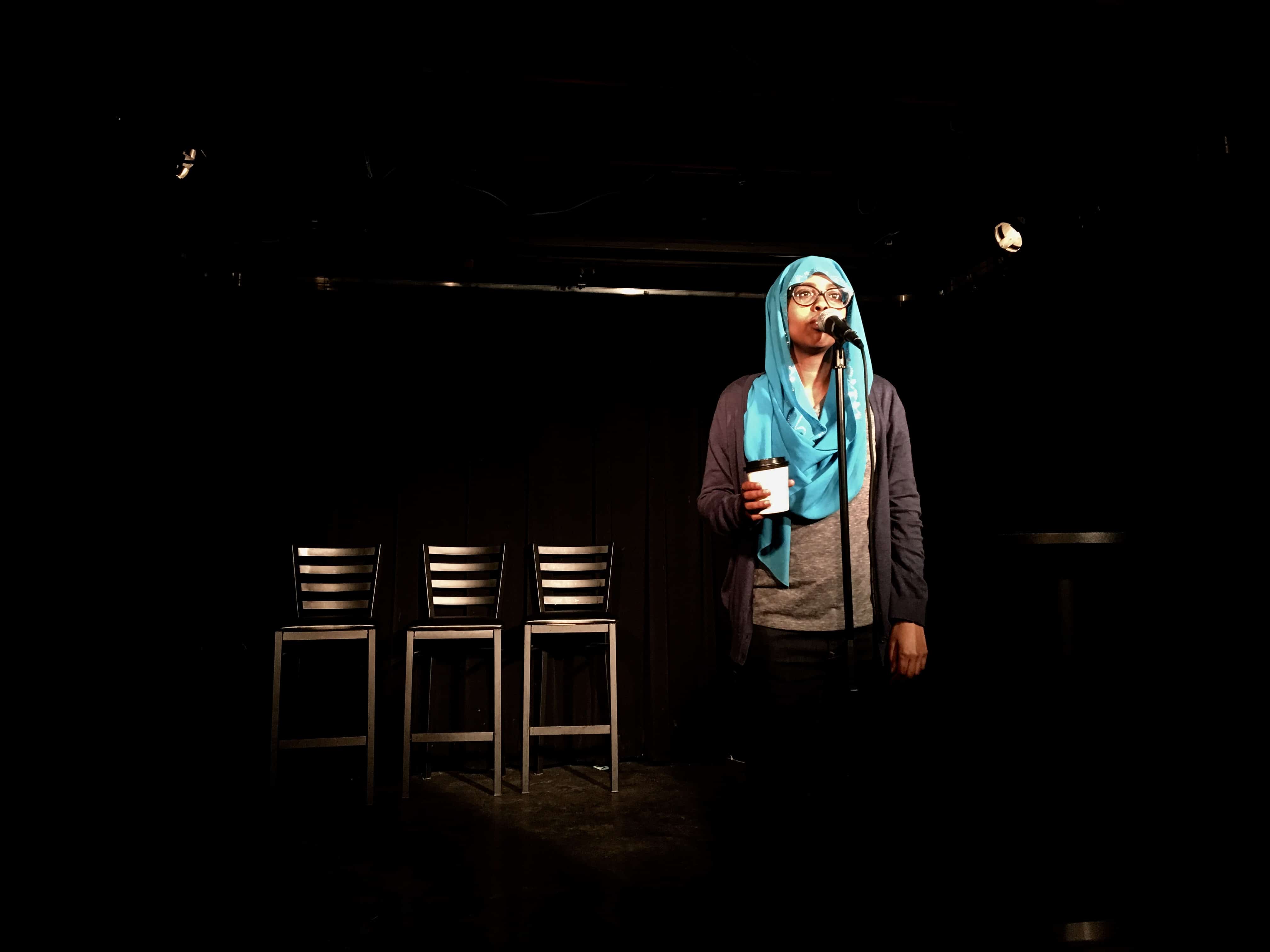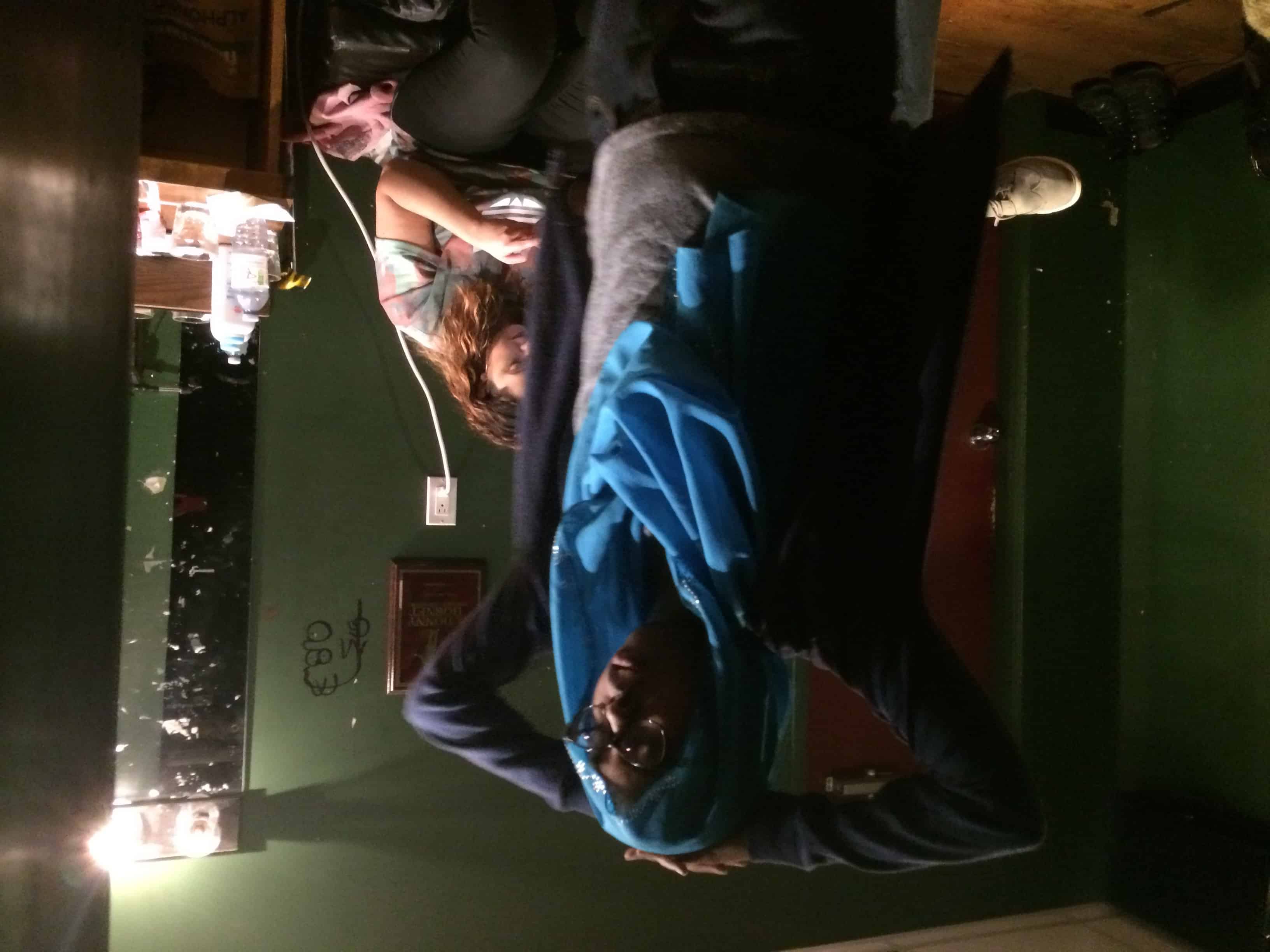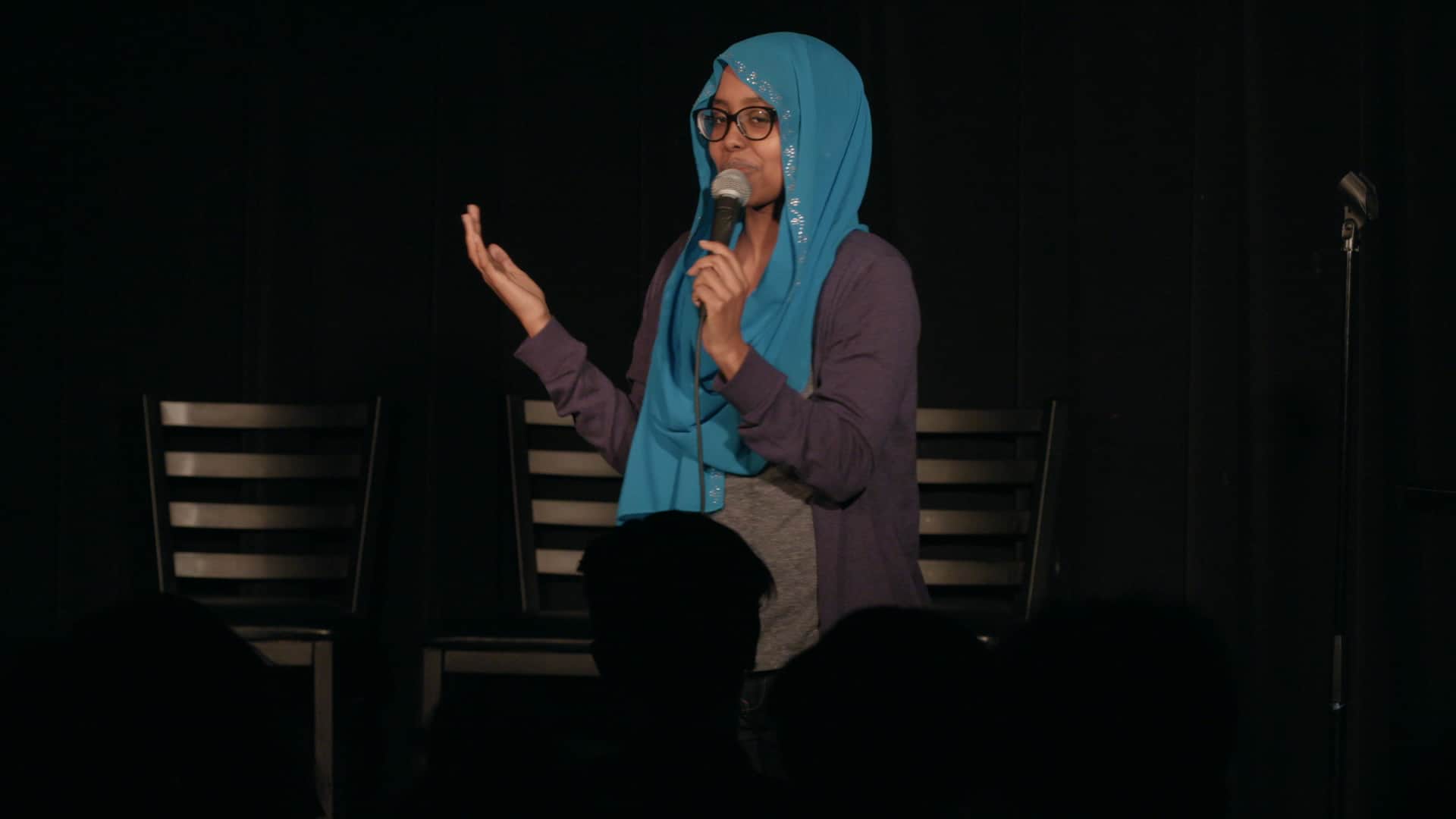Stand Up Toronto, TVO’s new doc, investigates what it’s like being an up-and-coming stand-up comedian – who isn’t white. It explores the experience of three comics – Aisha Brown, Danish Anwar and Hoodo Hersi – as they navigate Toronto’s stand-up comedy circuit.
We caught up with Hoodo last week.
SDTC: When did you realize you wanted to do stand-up comedy?
HH: Probably in my early teens. I was watching Chappelle’s Show and thought, wow – people do this for a living? That’s really cool.

Would you practice in front of family?
No, because it’s almost seen as an arrogant thing to be like, “I’m going to do comedy!” That whole “I’m funny and I want other people to know about it.” So what I would do was practice into a hairbrush in my room. Then I would have friends tell me, “Hoodo, you’re so funny. You should do your own show or something.”
When was your first gig?
The summer I turned eighteen before my first year of university, I went to Yuk Yuks in Ottawa and booked the open mic there. I figured if I bombed, then it’s fine, because no one knows who I am and that’s it. I can just go back to Toronto and it will be like it never happened. I got enough laughs, so I decided to keep going with it.
How has your material evolved since you started?
Before I was doing what I thought people wanted someone like me to talk about. I had this joke – “My dad finally let me leave the house,” and people would laugh at that, like “Oh, a Muslim woman that’s oppressed. We get the link. It’s funny.” But it was very cheap and lazy and also not applicable to me! Now I don’t really speak from that place because that’s not my life. It’s not authentic. Now I say the things I really want to say.

What’s your process like?
It’ll just be things that happen. Ideas will come in the shower, or when you least expect it. Your head will hit the pillow at night and then boom! You get an idea and scribble it down. Chris Rock does this (which I thought was really cool): he won’t take detailed notes, [he’ll write] just a few words. Then he’ll go up on stage and work with that. He’ll have an idea in mind. I find if I’m too detailed, I’ll be tied to a script, and it’s not fun at all.
Have you dealt with racist hecklers during a set?
I was doing a show and this guy walked in with a shirt that said, “I heart my foreskin.” It was Ramadan and I was performing. He assumed I was fasting then said something along the lines of “Ramadan is horrible.” The producer was nice enough to remove him. If it were to happen now, I think I have more tools to deal with it.

What are you sick of hearing in the comedy scene?
Just in general, when people are like, “What’s it like being a female comic?” Amy Schumer has a funny joke where she’s like, “Oh, it’s just like being a male comic, except when I go on stage I’m just bleeding all over the floor.”
There’s lots of subtle racism [in the comedy scene]. But unless you’re a Trump supporter, you’re not outwardly racist. It’s a challenge because it’s so subtle.
What’s the funniest thing you’ve experienced in recent memory?
Honestly, in general, people falling is really funny. Obviously not badly injuring themselves, but a little stumble makes me laugh. If I fall, it makes me laugh really hard. It’s a very childish thing, I understand.
Why did you want to get involved with Stand Up Toronto?
I think what happens sometimes is there are so many talented comics in Canada that just leave to go work in the States, because they’re not necessarily getting the appreciation they deserve here, which is unfortunate. I feel like [the documentary] is going to highlight some really great talent in Toronto.
Stand Up Toronto premieres on October 25th on TVO.



 Follow Us On Instagram
Follow Us On Instagram
